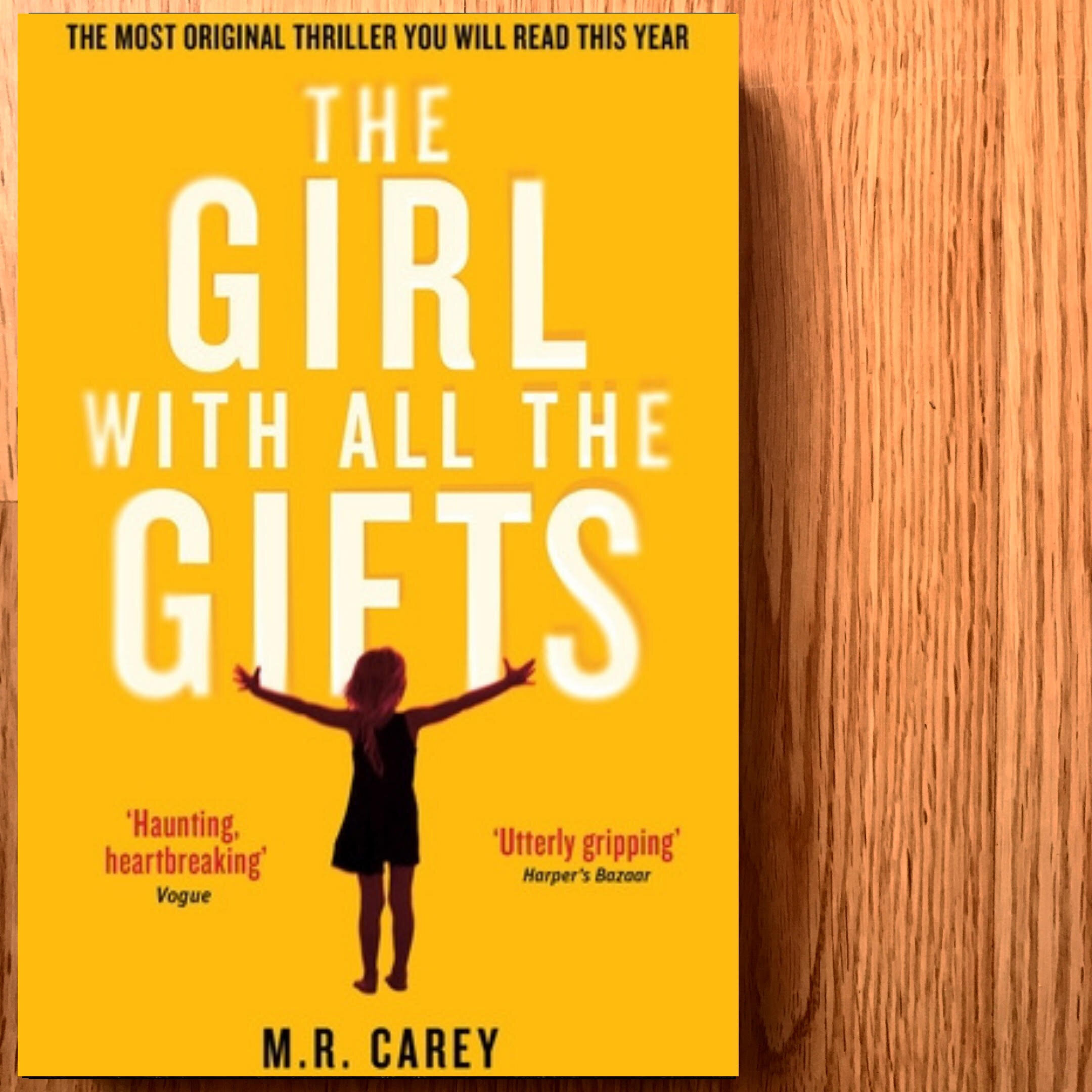By Dahl Botterill
Years ago, the first time I saw The Girl With All the Gifts sitting on a shelf, I noted Carey's name on the cover and thought it seemed interesting that there was another Carey out there writing. That it should be the same writer that I knew from the pages of Hellblazer and Lucifer didn't occur to me at all. Maybe I'd have read it much sooner had I known. Regardless, I'm certainly glad to have done so now.
The Girl With All the Gifts opens slowly and carefully, first introducing a young girl named Melanie and her teacher Miss Justineau. Melanie's entire life consists of a cell, a corridor, a classroom, and a shower room that she sees once a week. She lives alone in the cell, attends classes with other children in the classroom, and uses the corridor to travel between the two, strapped into a wheelchair and under armed guard. Melanie has a few teachers, but only Miss Justineau matters to her. Miss Justineau is kind, thoughtful, and—though Melanie perhaps doesn't initially realize this for what it is—sometimes sees the children as children. This is notable because, as we soon learn, the children are not merely children, but an anomalous type of monster that can think and feel when they're not desperately trying to eat people, and Melanie's world is a bunker in a military base, one of the few remaining strongholds of civilization in a world overrun by zombies.
Things soon fall apart, as things so often do in these stories, and Carey focuses for much of the story on a few individuals. The plot is not complicated, but that isn't really a problem, as the driving force behind The Girl With All the Gifts is in the characters. Melanie and her companions are pretty archetypal at first, but as they are each forced to compromise and develop during their journey, they grow into more realized individuals.
Miss Justineau never ceases to be a teacher, Caldwell will always be an obsessed scientist, and the soldiers are still soldiers, but as they explore the world that humanity has lost control over, they each become much more than their role.
Melanie develops the most, of course, as she's experiencing almost every aspect of the world for the first time, but some of the most interesting aspects of her growth relate to her relationship with those around her and the power dynamics between them. She goes from being rendered almost powerless because of the way her potential power is feared, to gaining more autonomy, but also a different sort of power—more about what she is capable of as a person than her potential for violence as a monster.
M. R. Carey's The Girl With All the Gifts is a great read, slipping from horrifying to human and back again, reveling in the struggle to find hope at the end of the world.

